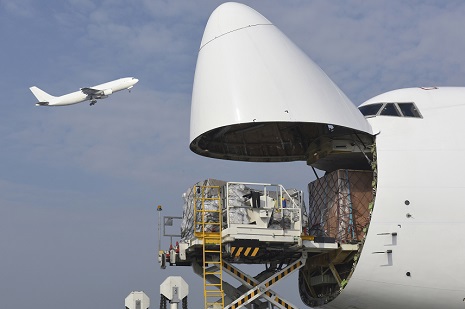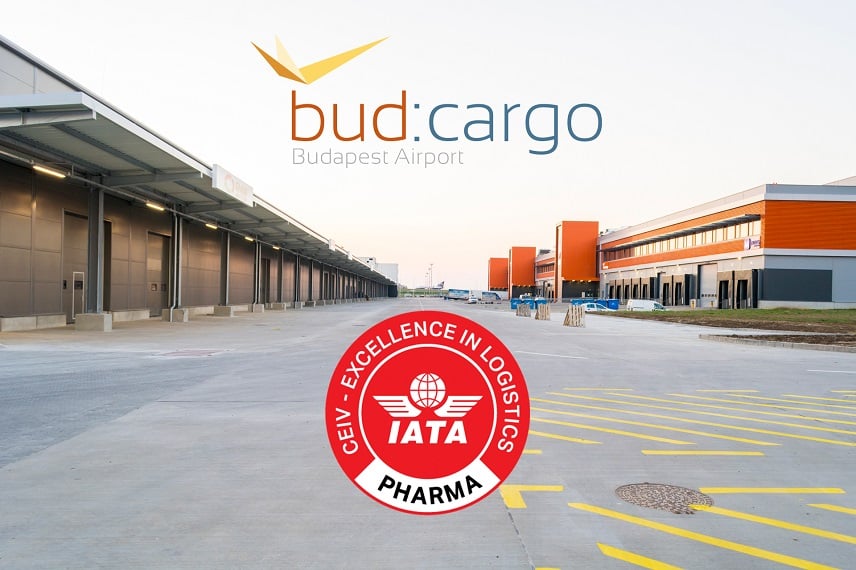
CEIV Pharma Certification: Why does it matter?
At a time when the successful transportation of vaccines has become a life and death matter, Anca Apahidean, IATA’s Area Manager for Eastern Europe, is keen to set the record straight regarding the perception of air freight. “To the public, the transportation of pharmaceutical products from manufacturer to distributor might seem a straightforward, logical, and easy process. It’s not!” she exclaims. “Supply chain, distance, and changes in climate are among the many challenges faced by the pharmaceutical distribution system”.

Anca Apahidean, IATA's Area Manager for Eastern Europe
Temperature is also a critical variable. A significant part of pharmaceutical cargo must be transported and stored within strict temperature limits to ensure its quality, and the slightest fluctuation in temperature during transportation logistics could render a product inadmissible or even harmful to the intended patient. As such, full compliance with industry standards, accountability and transparency are crucial across the entire supply chain, from the point of origin to the final destination of the product.
With the aim to ensure product integrity and quality throughout a supply chain, the Center of Excellence for Independent Validators for Pharmaceutical Logistics (CEIV Pharma) provides a globally harmonised assessment of the handling and transportation of pharmaceutical products by air. It is an industry-wide standard which ensures that facilities, equipment, operations, and staff comply with all applicable standards, regulations and guidelines recommended by the manufacturers.
Managed by IATA, the CEIV Pharma Certification is a quality stamp within the pharmaceutical distribution sector. It certifies a higher and more consistent level of competency, as well as the operational and technical preparedness of stakeholders within the pharmaceutical supply chain.
Eastern European Outlook
Apahidean stresses the important air cargo role which Budapest plays in the Eastern European region despite fierce competition from neighbouring airports such as Vienna and Frankfurt. Notwithstanding the challenging times, Budapest Airport (BUD) has maintained the ambition to develop local infrastructure and services to retain its competitive edge. And with the establishment of several pharmaceutical manufacturing facilities in nearby countries, the region is forecast to witness some 10% expansion in its cold chain logistics in the near future.
“Some might say, with great power comes greater responsibility. In this regard, Budapest Airport has consistently enhanced its air cargo connectivity and improved its infrastructure throughout the years. In January 2020 for instance, the BUD Cargo City began operation as the air cargo handling facility of the airport, going on to play a key role in facilitating the transportation of medical equipment and storage of vaccines,” notes Apahidean.
Looking beyond the global pandemic towards the need to address specific air cargo requirements while also complying with global and national standards in safeguarding pharmaceutical product integrity, six companies including air freight forwarders, grounds handlers and transporters have partnered with BUD to form an Airport Community under the CEIV Pharma program.

Upon certification, the Budapest Airport Community will become the second community in Eastern Europe after Warsaw to form one pharmaceutical gateway to the entire supply chain. The six companies – Agility Magyarország Kft; AIRMAX Cargo Budapest Zrt.; Cargo-Partner Hungária Fuvarszervezési Kft.; Menzies Aviation Cargo Hungary Ltd.; Prevost-Hungaria Szallitasi KFT; and Celebi Ground Handling Hungary Ltd – will join some 20 existing global airport communities certified by CEIV Pharma and over 300 certified companies around the globe. They will have access to adequately equipped facilities throughout the supply chain, a common audit format to minimize the disruptions and increase effectiveness, and the ability to easily search and identify stakeholders that meet industry-standard requirements.
For Rafael Schvartzman, IATA’s Regional Vice President for Europe, Budapest’s commitment to achieving the CEIV pharma standards has come at a crucial time. “Under the current pandemic circumstances, partnerships such as this reinforce the air cargo industry’s resilience and competitiveness” he says. “As we embark on what is deemed to be the single most important logistics challenge in aviation's history – the transportation of billions of vaccine doses around the world – this initiative sends a positive signal that air cargo is mobilizing to support the sector, by adapting to the pressing need for standardization and digitalization”.
Dr. Rolf Schnitzler, the CEO of Budapest Airport, agrees, and goes further. “Medical supplies – medical equipment and pharmaceutical products – have come into the focus of attention all over the world during the past year” he notes. “However, pharmaceutical logistics is of key importance not only during a global pandemic; that is why we decided to safeguard it in the framework of a new quality assurance system that pharmaceuticals should get to where they are needed even faster and under stricter safe conditions”.